Assault charges in Las Vegas can have severe legal and personal consequences. Whether it’s a heated argument that escalates or a misunderstanding that gets out of hand, assault charges can affect your freedom, finances, and future. Understanding the nature of these charges, your rights, and the legal process can significantly affect how your case is resolved.
Note: Make sure to also check out our 3rd Degree Assault in Las Vegas post while you’re here.
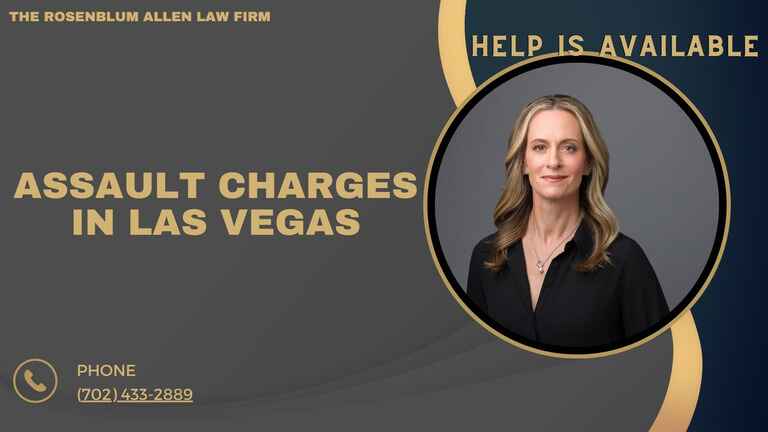

Assault charges are more common than many realize and are not always straightforward. Misconceptions about what qualifies as assault often lead people to underestimate the severity of their situation. Knowing what you’re up against is the first step in protecting yourself and navigating the legal system.
Types of Assault Charges in Las Vegas
Assault charges in Las Vegas are categorized based on the severity of the offense and the circumstances surrounding the incident. Here’s a breakdown of the most common assault charges you may face.
Simple Assault
Simple assault is the most basic form of assault under Nevada law. It doesn’t necessarily involve physical contact but rather the threat of harm.
- Definition of Simple Assault: Simple assault is defined as intentionally putting another person in reasonable fear of immediate bodily harm. This can be through threats, gestures, or aggressive behavior.
- Examples of Simple Assault:
- Threatening someone with violence during an argument.
- Raising a fist or brandishing an object in a threatening manner without actual physical contact.
- Yelling threats of harm while advancing toward another person.
Aggravated Assault
Aggravated assault is a more serious charge that involves circumstances that elevate the threat level beyond simple assault.
- What Makes an Assault Charge Aggravated?:
- The use or display of a weapon during the assault.
- Intent to cause severe injury or fear of severe injury.
- Assaulting a vulnerable individual, such as a child or older adult.
- Common Scenarios Leading to Aggravated Assault Charges:
- Swinging a baseball bat during a fight, even if no one is hit.
- Threatening someone with a knife or other deadly weapon.
- Assault occurs during another crime, like robbery or burglary.
Assault with a Deadly Weapon
Assault with a deadly weapon is one of the most severe types of assault charges and carries heavy penalties.
- Definition and Legal Implications: This charge involves using or threatening to use a deadly weapon during an assault. A lethal weapon doesn’t have to be a gun or knife; it can be anything that could cause serious harm or death, such as a car, blunt object, or even a threatening animal.
- Examples of What Constitutes a Deadly Weapon:
- Using a gun, knife, or other conventional weapon.
- Brandishing a vehicle in a threatening manner.
- Using an object like a broken bottle or heavy tool to intimidate or threaten.
Domestic Assault
Domestic assault involves assault within a domestic setting, such as between family members, roommates, or intimate partners.
- How Assault Charges Apply in Domestic Situations: Domestic assault charges can arise from altercations within households or between individuals who share a close personal relationship. These cases often involve heightened emotions and complex dynamics.
- Special Considerations in Domestic Assault Cases:
- Stricter penalties due to the relationship between the parties.
- Protective orders or restraining orders that may impact living arrangements.
- Mandatory counseling or anger management programs.
Understanding these types of assault charges helps you recognize the gravity of your situation and prepare for the legal challenges ahead. Each charge has its own set of legal implications and requires a different approach to defense.
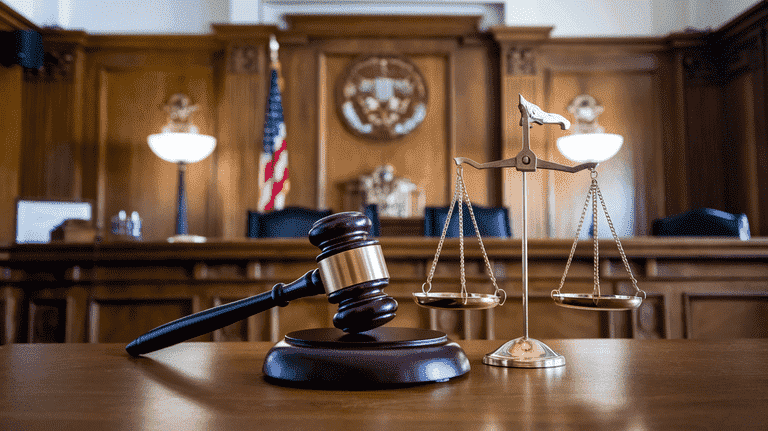
Legal Penalties for Assault Charges in Las Vegas
Facing assault charges in Las Vegas means dealing with a range of potential penalties, from fines to imprisonment. The severity of these penalties depends on the nature of the assault, whether it’s a misdemeanor or felony, and any aggravating factors involved. Knowing what penalties you might face can help you prepare and make informed decisions about your defense.
Misdemeanor vs. Felony Assault
The legal consequences of an assault charge hinge largely on whether the offense is classified as a misdemeanor or a felony. Here’s a look at the key differences:
Misdemeanor Assault:
- Definition: Typically involves simple assault with no serious injuries and no use of a weapon.
- Penalties: Misdemeanor assault can result in up to six months in jail, fines up to $1,000, and possible community service or probation.
- Examples: Threatening someone during an argument without following through, or minor scuffles that don’t lead to significant injury.
Felony Assault:
- Definition: Involves aggravated circumstances, such as the use of a weapon, serious injury, or intent to commit another crime.
- Penalties: Felony assault can lead to one to twenty years in prison, depending on the severity of the case, with fines that can reach up to $10,000 or more.
- Examples: Attacking someone with a knife, using a vehicle as a weapon, or assaulting a police officer.
| Charge Type | Jail Time | Fines | Other Penalties |
|---|---|---|---|
| Misdemeanor Assault | Up to 6 months | Up to $1,000 | Community service, probation |
| Felony Assault | 1 to 20 years | Up to $10,000+ | Probation, anger management |
Jail Time and Fines
The length of jail time and the amount of fines vary based on the assault charge:
Potential Jail Sentences:
- Misdemeanor assault usually results in shorter jail sentences, often under a year, and sometimes may be substituted with probation or community service.
- Felony assault, especially with aggravating factors like a weapon, carries much longer sentences, ranging from one year to potentially decades in prison.
Overview of Fines:
- Fines for assault start relatively low for misdemeanors but can escalate quickly with felonies, particularly if the assault involves a deadly weapon or results in serious injury.
- Additional financial penalties may include court costs, restitution to the victim, and fees for mandatory classes or counseling.
Additional Penalties
Assault convictions can lead to more than just jail time and fines. There are other consequences that can affect your daily life:
- Probation and Community Service: Courts may impose probation in place of or alongside jail time. This probation often comes with strict conditions, like regular check-ins, no contact with the victim, and mandatory employment or education requirements.
- Anger Management Classes and Counseling: Judges frequently order anger management or counseling, especially in cases of domestic assault. These programs aim to address the underlying issues that led to the offense.
- Restraining Orders: In cases involving domestic or aggravated assault, the court may issue a restraining order that restricts contact with the victim, which can affect where you live, work, or spend your free time.
Understanding the range of penalties helps highlight the seriousness of assault charges and the importance of building a strong defense.
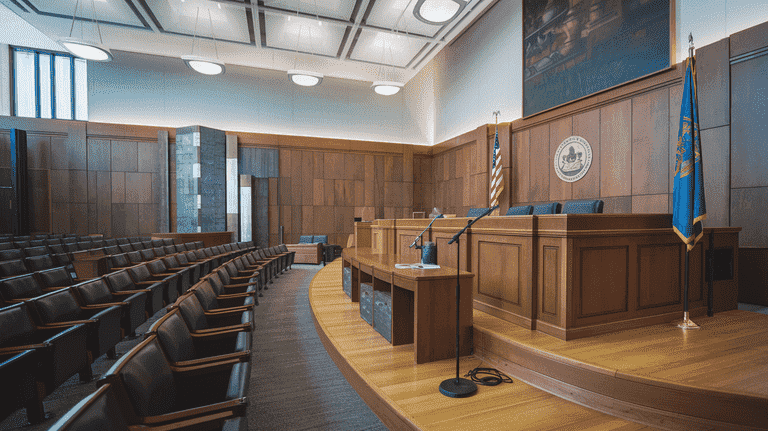
The Criminal Process for Assault Charges
If you’ve been charged with assault in Las Vegas, you’ll need to navigate a complex criminal process. Each stage of this process presents opportunities to defend yourself, challenge the evidence, or negotiate a better outcome.
Arrest and Booking
The assault charge process begins the moment you’re arrested. Here’s what happens:
What Happens During the Arrest for Assault?
- Police will take you into custody based on evidence or reports of the assault. This can occur at the scene of the incident or later, based on a warrant.
- You’ll be read your Miranda rights, which inform you of your right to remain silent and to have an attorney.
The Booking Process Explained:
- Booking involves taking your fingerprints, photographing you, and entering your information into the system.
- You’ll be placed in a holding cell until you’re either bailed out or taken to your initial court appearance.
Court Appearances
After booking, you’ll face a series of court appearances that will determine the course of your case.
Initial Arraignment and Plea Options:
- At the arraignment, you’ll be formally charged, and you’ll have the chance to enter a plea of guilty, not guilty, or no contest.
- The judge will also set bail during this hearing, determining whether you can be released from custody while awaiting trial.
Pre-Trial Motions and Hearings:
- Your attorney may file motions to dismiss the case, suppress evidence, or reduce the charges.
- These hearings allow both the defense and prosecution to argue about the admissibility of evidence and the validity of the charges.
Plea Bargaining
Most assault cases never reach trial because they are resolved through plea bargaining.
- Opportunities for Plea Bargains in Assault Cases:
- A plea bargain involves negotiating with the prosecution to reduce your charges in exchange for a guilty plea. This can result in lesser penalties, such as a reduced fine, probation instead of jail time, or a misdemeanor charge instead of a felony.
- Pros and Cons of Accepting a Plea Deal:
- Pros: Avoids the uncertainty of trial, often results in lighter sentencing, and saves time and legal fees.
- Cons: Requires admitting guilt, which can carry long-term consequences, and may not always be the best option if you have a strong defense.
Trial and Sentencing
If your case goes to trial, the court will hear evidence, and a judge or jury will decide your fate.
- The Trial Process for Assault Charges:
- Trials involve opening statements, witness testimonies, cross-examinations, and closing arguments. Both sides present their case, and the prosecution must prove your guilt beyond a reasonable doubt.
- Factors Influencing Sentencing Decisions:
- The judge considers the severity of the assault, the presence of any weapons, your criminal history, and any mitigating factors like self-defense or provocation.
Understanding each step of the criminal process helps demystify the legal journey you’re on. It also highlights the importance of having strong legal representation to advocate for your rights at every turn.
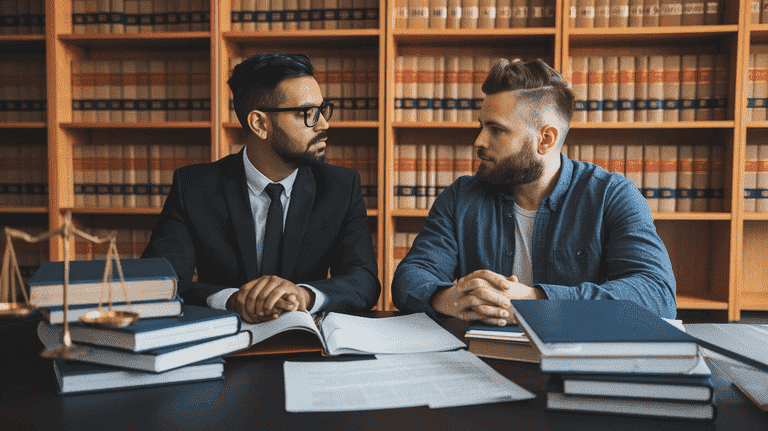
Defenses Against Assault Charges in Las Vegas
Being charged with assault in Las Vegas doesn’t automatically mean you will be convicted. Several defenses can be used to challenge the charges and protect your rights. The success of these defenses depends on the specifics of your case, so it’s crucial to work closely with a skilled attorney who can craft the right strategy.
Self-Defense
One of the most common defenses against assault charges is self-defense. If you were protecting yourself from harm, the law allows you to use reasonable force.
- Legal Criteria for Claiming Self-Defense:
- You must have had a reasonable belief that you were in imminent danger of bodily harm.
- The force you used must have been proportional to the threat you faced. For example, you can’t use deadly force to repel a minor, non-threatening shove.
- How Self-Defense is Proven in Court:
- Your attorney will present evidence showing that the other party was the aggressor.
- Witness testimony, video footage, and physical evidence like injuries can support your claim of self-defense.
Defense of Others
Similar to self-defense, you are allowed to use force to protect someone else from harm. This defense is often used in situations involving family members, friends, or strangers.
- When and How You Can Use Force to Protect Others:
- The person you were defending must have been in immediate danger of harm.
- Your response must be reasonable and not excessive, given the situation.
- Legal Limits of Defending Someone Else:
- You cannot escalate the situation unnecessarily. For instance, if someone is about to punch your friend, you can intervene, but pulling out a weapon could be seen as excessive.
- The law does not protect you if you provoke the situation or use force beyond necessary to defend the other person.
Lack of Intent
Intent is a crucial element in many assault cases. Without intent to harm, the charges may not stand.
- Importance of Intent in Assault Cases:
- The prosecution must prove that you intended to threaten or harm the other person to convict you.
- Accidental actions, such as bumping into someone during a heated moment, typically do not meet the legal threshold for assault.
- Strategies to Prove Lack of Intent:
- Your attorney may argue that the incident was a misunderstanding or an accident.
- Evidence showing your lack of motive or intention, such as witness statements confirming your non-threatening behavior, can be vital.
False Accusations
Sadly, false accusations of assault happen, often out of spite, revenge, or misunderstanding. Defending against false claims is challenging but not impossible.
- How to Defend Against False Assault Allegations:
- Your attorney will work to discredit the accuser’s claims by highlighting inconsistencies in their story.
- Evidence like alibis, eyewitness accounts, or lack of physical evidence can undermine the prosecution’s case.
- Evidence That Can Support Your Defense:
- Video footage showing you were not involved in the incident.
- Testimonies from neutral witnesses who saw the event unfold differently than described by the accuser.
Mistaken Identity
Assault charges can sometimes arise from mistaken identity, especially in chaotic situations where emotions run high.
- Proving You Were Not the Assailant:
- Evidence like alibi witnesses or surveillance footage can be critical if you were not present at the scene or were mistaken for someone else.
- Your attorney may also challenge the credibility of eyewitnesses, who often make mistakes under stress.
- The Role of Eyewitness Testimony and Surveillance Footage:
- Your defense can use inconsistencies in witness statements or present alibi evidence that shows you couldn’t have been the assailant.
- Surveillance footage, if available, can provide concrete proof of your innocence.
Having a solid defense strategy tailored to your specific circumstances is crucial. These defenses highlight the importance of understanding your rights and working closely with your attorney to challenge the charges against you.

Long-Term Consequences of an Assault Conviction
An assault conviction doesn’t just end with your sentence. The long-term consequences can follow you for years, affecting various aspects of your life. Knowing these potential impacts underscores why it’s so important to fight assault charges vigorously.
Impact on Employment
A conviction can have severe repercussions on your job prospects and career.
- Challenges in Finding or Maintaining a Job with an Assault Conviction:
- Many employers conduct background checks, and a criminal record can disqualify you from many positions.
- Jobs that involve trust, such as roles in education, healthcare, or security, are challenging to obtain with a criminal record.
- Disclosure Requirements on Job Applications:
- Some job applications ask specifically about criminal convictions. Failing to disclose a conviction can result in termination if discovered later.
- Your assault conviction might also affect your eligibility for specific professional licenses, making working in regulated fields like law, medicine, or finance harder.
Loss of Civil Rights
Assault convictions, especially felonies, can lead to the loss of certain civil rights.
- Voting Rights and Gun Ownership Restrictions:
- In Nevada, felons lose their right to vote, though this can sometimes be restored after completion of the sentence, parole, or probation.
- Felony convictions also prohibit you from owning or possessing firearms, impacting personal safety, hunting, and other activities.
- Impact on Professional Licenses and Certifications:
- Law, healthcare, and education licenses can be revoked or suspended, making it nearly impossible to continue in your chosen profession.
- Relying on licenses can be lengthy and challenging without guarantees, even after completing your sentence.
Financial Consequences
Assault convictions come with financial burdens that go beyond court fines.
- Cost of Fines, Legal Fees, and Court Costs:
- The initial fines and court costs are just the beginning. Legal fees can quickly add up, especially if your case is complex or goes to trial.
- You may also be required to pay restitution to the victim, which can amount to thousands of dollars.
- Long-Term Financial Impacts:
- Your insurance premiums, including car and health insurance, may increase due to your criminal record.
- A conviction can also affect your ability to qualify for loans, secure housing, or receive educational financial aid.
Social and Personal Impacts
The social stigma of an assault conviction can strain your relationships and limit your future opportunities.
- Stigma and Relationship Strain:
- Friends and family may distance themselves, mainly if the case receives public attention.
- The strain can be particularly severe in cases involving domestic assault, leading to broken relationships and family disruption.
- Effects on Housing and Travel Opportunities:
- Landlords often conduct background checks, and a criminal record can make finding a place to live more difficult.
- Some countries deny entry to individuals with certain criminal records, limiting your travel options for work or leisure.
These long-term consequences illustrate that the impact of an assault conviction extends far beyond the courtroom. They remind us why it’s crucial to take every possible step to defend yourself and protect your future.
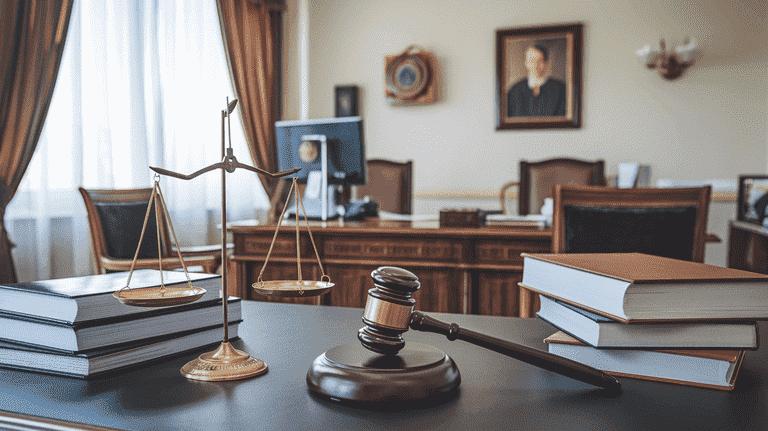
Seeking Legal Representation for Assault Charges
If you’re facing assault charges in Las Vegas, one of the most important decisions you’ll make is hiring the right attorney. An experienced criminal defense lawyer can mean the difference between a conviction and a reduced charge—or even a dismissal. Legal representation is not just about having someone in court with you; it’s about having a guide, an advocate, and a strategist on your side.
Importance of Hiring a Criminal Defense Attorney
Assault charges are complex, and the stakes are high. Here’s why hiring a defense attorney is crucial:
- Benefits of Professional Legal Representation:
- An experienced attorney understands the nuances of Nevada’s assault laws and knows how to navigate the local court system.
- Your lawyer will thoroughly investigate your case, gather evidence, and identify weaknesses in the prosecution’s argument.
- A skilled attorney can negotiate with prosecutors for reduced charges, plea bargains, or alternative sentencing options that can keep you out of jail.
- How an Attorney Can Impact Your Case Outcome:
- They will develop a tailored defense strategy, whether proving self-defense, challenging evidence, or discrediting witnesses.
- Your attorney’s reputation and negotiation skills can play a significant role in plea deals, potentially resulting in lighter penalties or even a dismissal.
- They provide critical guidance through every stage of the legal process, reducing your stress and helping you make informed decisions.
What to Look for in an Assault Defense Lawyer
Not all attorneys are the same, especially when handling assault charges. Here’s what you should consider when choosing your lawyer:
- Experience with Assault Cases and Trial Success Rates:
- Look for an attorney with a proven track record in handling assault cases similar to yours. Experience matters, especially when understanding the intricacies of assault charges and local court procedures.
- Trial experience is also crucial. If your case goes to trial, you want a comfortable and confident lawyer in the courtroom.
- Client Reviews and Testimonials:
- Reading reviews from past clients can give you valuable insights into how the attorney handles cases, communicates with clients, and achieves results.
- Look for testimonials highlighting successful outcomes, responsiveness, and a personal approach to client service.
Cost of Legal Representation
Hiring an attorney comes with costs, but the investment can be worth it when your freedom and future are on the line.
- Average Costs for Assault Defense Attorneys:
- Fees for assault defense can vary widely depending on the complexity of your case, the attorney’s experience, and whether your case goes to trial.
- On average, you might expect to pay anywhere from $3,000 to $10,000 or more for misdemeanor assault cases. Felony cases, especially those that require a trial, can cost significantly more.
- Payment Plans and Financial Assistance Options:
- Many attorneys offer payment plans, allowing you to spread the cost of representation over time.
- Some law firms may also offer sliding scale fees based on your income or provide free initial consultations, giving you a chance to discuss your case before committing.
Choosing the right lawyer is one of the most important steps you can take after being charged with assault. The proper legal representation helps you understand your options and provides the support you need to fight for the best possible outcome.
Preventing Assault Charges in the Future
An assault charge can be a turning point—a wake-up call that motivates you to make changes to prevent future legal issues. Whether you’ve been charged with assault before or this is your first time, there are steps you can take to avoid similar situations in the future.
Conflict Resolution Skills
Learning how to manage conflicts without resorting to aggression is crucial. Here are some tips to help you keep your cool:
- Tips for Managing Anger and Avoiding Confrontations:
- Take a moment to breathe and assess the situation before reacting. Walking away from a heated moment can prevent things from escalating.
- Practice active listening. Often, conflicts arise because people feel unheard. Letting the other person speak can defuse tensions.
- Use “I” statements instead of blaming language. For example, say, “I feel upset when…” instead of “You always…”
- Resources for Anger Management and Communication Training:
- Anger management classes are widely available and can provide tools for managing emotions in high-stress situations.
- Communication workshops and counseling services can teach you practical ways to express yourself without resorting to threats or aggression.
Understanding Nevada’s Assault Laws
Being aware of the laws can help you avoid actions interpreted as assault.
- Knowing Your Rights and the Legal Boundaries of Self-Defense:
- Educate yourself on what constitutes self-defense and where the legal lines are drawn. This knowledge can help you avoid situations that might escalate into criminal charges.
- Be aware of how Nevada law views “reasonable force.” Using excessive force, even in self-defense, can turn a justifiable act into a criminal one.
- Situational Awareness to Avoid Potential Altercations:
- Consider your surroundings, especially in high-tension environments like bars or large gatherings.
- Avoid confrontations with aggressive or volatile individuals, and always have an exit strategy when situations feel out of control.
Alternatives to Physical Confrontation
Choosing non-violent options can prevent altercations from turning into criminal charges.
- De-Escalation Techniques and Non-Violent Responses:
- Speaking calmly, keeping your hands visible, and maintaining non-threatening body language can help de-escalate conflicts.
- Apologizing, even if you’re not entirely at fault, can often defuse a situation before it spirals out of control.
- Using Law Enforcement or Mediation as Alternatives:
- If a situation is becoming dangerous, don’t hesitate to call law enforcement for assistance. It’s better to involve authorities than to risk physical confrontation.
- Consider mediation services for ongoing conflicts, such as disputes with neighbors or family members. Mediation provides a neutral space to resolve issues without violence.
Taking these steps can help you avoid the legal pitfalls of assault charges in the future. You can protect yourself from further legal trouble by learning to manage conflicts constructively, understanding your legal rights, and choosing non-violent alternatives.

Breaking It Down
Assault charges in Las Vegas are serious, and the impact of a conviction can be long-lasting. From legal penalties to personal and financial consequences, an assault charge can affect every aspect of your life. However, understanding your rights, the legal process and the defenses available to you can make a significant difference in the outcome of your case.
Summary of Key Points on Assault Charges in Las Vegas
- Types of Assault Charges: Assault charges range from simple assault to aggravated assault and assault with a deadly weapon. Each type carries different penalties and requires specific defense strategies.
- Legal Penalties: Assault can be classified as either a misdemeanor or a felony, with penalties including jail time, fines, probation, community service, and more. The severity of your charges and any aggravating factors will influence the outcome.
- Defenses Against Assault Charges: There are several potential defenses, including self-defense, defense of others, lack of intent, false accusations, and mistaken identity. The right defense strategy depends on the circumstances of your case.
- Long-Term Consequences: Beyond the immediate penalties, an assault conviction can lead to loss of employment opportunities, restrictions on civil rights, financial burdens, and personal stigma. These consequences highlight the importance of fighting the charges with a solid legal strategy.
- Seeking Legal Representation: Hiring an experienced criminal defense attorney is crucial. A skilled lawyer can help you navigate the legal process, negotiate with prosecutors, and fight for the best possible outcome in your case.
- Preventing Future Charges: Learning conflict resolution skills, understanding Nevada’s assault laws, and choosing non-violent alternatives can help you avoid legal trouble in the future. Being proactive about managing anger and avoiding confrontations is essential.
The Importance of Knowing Your Legal Options and Seeking Help
Facing assault charges can feel overwhelming, but you don’t have to go through it alone. Understanding your options and seeking professional legal help can significantly impact your case. The proper defense can mean the difference between a conviction and a second chance.
It’s essential to take every charge seriously. Even a misdemeanor assault conviction can affect your life in ways you might not expect. You can navigate this challenging time and move forward by educating yourself, working with an experienced attorney, and taking proactive steps to manage conflicts.
Encouragement to Take Proactive Steps in Managing Conflict and Protecting Your Rights
If you’ve been charged with assault, now is the time to act. Reach out to a criminal defense lawyer who understands the local legal landscape. Prepare for your court appearances, gather evidence, and be honest about your situation with your legal team.
But beyond the courtroom, use this experience as a catalyst for personal growth. Develop better ways to handle conflicts, seek help if you struggle with anger, and stay informed about your rights. Your actions now can set the tone for a better future, free from the cycle of repeated legal issues.
Remember, the decisions you make today will shape you tomorrow. With the right approach, you can overcome this challenge, protect your rights, and take steps toward a more positive path ahead.

Frequently Asked Questions
What constitutes an assault charge in Las Vegas?
In Las Vegas, assault is generally defined under Nevada law as intentionally putting another person in reasonable fear of immediate bodily harm. It’s important to note that physical contact or injury isn’t necessary to warrant an assault charge; the threat alone can be enough.
Are there different degrees of assault charges?
Yes, assault charges can vary in severity, often classified as either a misdemeanor or a felony. The classification depends on several factors, including the threat level, the use of a deadly weapon, and whether the victim is a protected person, such as a police officer.
What are the potential penalties for an assault charge in Las Vegas?
The penalties can range based on the severity of the charge. For a misdemeanor assault, penalties may include fines and jail time. Felony assault charges can result in more substantial fines and longer prison sentences. Besides, a charge could affect your record, potentially impacting future opportunities for employment or housing.
Can an assault charge be dropped or reduced in Las Vegas?
Yes, an assault charge can be dropped or reduced, depending on the circumstances of the case. This could involve demonstrating insufficient evidence, raising a valid defense (like self-defense), or negotiating a plea deal. It’s essential to have a skilled defense attorney to navigate these possibilities.
What are the defenses against an assault charge?
Defenses against an assault charge can vary based on the case’s specifics. Common defenses include:
- Self-defense.
- Defense of others.
- Lack of intent.
- Arguing that the alleged threat wasn’t immediate or reasonable.
A defense attorney can help identify your situation’s most suitable defense strategy.
Are there alternative outcomes to going to trial for an assault charge?
Yes, not all assault cases end up in court. Alternatives can include restorative justice programs, which focus on repairing the harm caused by the crime. These may involve the accused meeting with the victim, understanding the impact of their actions, and taking steps to make amends.

Glossary
Assault: A crime that involves intentionally putting another person in reasonable fear of immediate bodily harm. In Nevada law, actual physical contact or injury is not necessary for an assault charge.
Misdemeanor: A lesser criminal act punishable by a fine, probation, community service, or imprisonment, typically not exceeding one year.
Felony: A more serious crime with a heavier penalty, often imprisonment exceeding one year, more significant fines, or a combination of both.
Nevada Revised Statutes: The laws of the state of Nevada. Assault laws are found in Chapter 200 of these statutes, under ‘Crimes Against The Person.’
Restorative Justice Programs: Alternatives to the court that focus on repairing the harm caused by crime. This often involves the offender meeting with the victim, understanding the impact of their actions, and taking steps to make amends.
Plea Deal: An agreement in a criminal case where the accused agrees to plead guilty to a particular charge in return for some concession from the prosecutor, like a lesser or more lenient sentence.
Appeal: A request made to a higher court to review a lower court’s decision. The objective is to seek a reversal of the lower court’s judgment.
Legal Defense: A strategy or argument used during a trial to challenge the validity of the charges or the evidence against the accused.
Protected Person: Certain individuals, such as police officers, medical providers, and school employees, are given special protection under Nevada law. Assault against a protected person can lead to more severe charges and penalties.
Legal Representation: The act of lawyers representing individuals, businesses, or organizations in legal proceedings or matters.
Transparent Pricing: A pricing strategy where the firm discloses the costs associated with their services upfront, allowing clients to understand the financial commitment involved.
Continuing Legal Education: Ongoing education that lawyers engage in after their initial admission to the bar to keep their skills and knowledge up to date.

Additional Resources for You
We would like to remind our readers that our lead attorney, Molly Rosenblum, Esq., has created a number of resources to assist them in their time of need.
- Warrant Defense Attorneys: A guide to understanding the role and importance of warrant defense attorneys in Las Vegas.
- Do You Need to Hire a Lawyer for Misdemeanor Charges?: This resource provides insights into the necessity and benefits of hiring a lawyer for misdemeanor charges.
- The Nevada Arraignment – Frequently Asked Questions: A comprehensive FAQ addressing questions about the arraignment process in Nevada.
- The Definitive Guide to Sealing Criminal Records in Nevada: A detailed guide on how to seal criminal records in Nevada.
- Sex Crimes Attorney: Information on the role of a Sex Crimes Attorney and how they can help in such cases.
- Nevada Shoplifting Laws: A comprehensive overview of shoplifting laws in Nevada.
- Gang Crimes Lawyer: Information on how a Gang Crimes Lawyer can aid in defending against gang-related charges.
- Murder vs Homicide: A resource that explains the key differences between murder and homicide charges.
- Extortion: A guide that provides information about extortion charges and how to navigate them effectively.
- Evading Police: A resource that explains the implications of evading police charges and how to approach them.
- Reckless Driving: A comprehensive guide on reckless driving charges and the legal consequences.
- Robbery: A detailed resource on robbery charges and their legal implications.
- Stalking: A guide that provides information about stalking charges and how to deal with them.
- Battery: A resource that explains battery charges and how to navigate them effectively.
- Cyber Stalking: A comprehensive guide that provides insights into the charges, consequences, and defense strategies for cyber stalking cases.
We hope you find these resources helpful and informative.

Offsite Resources for You
Here are some additional offsite resources that may be helpful for readers interested in the legal topics discussed:
American Bar Association: A national organization providing resources on a wide array of legal topics, including criminal law.
Legal Information Institute – Cornell Law School: This offers a comprehensive library of federal and state laws, as well as insight into various legal concepts and terms.
Nolo: A repository of legal articles, blogs, and resources that cover a spectrum of legal topics, including criminal law.
The National Criminal Justice Reference Service: This service offers extensive resources on crime, victim assistance, and public safety.
FindLaw: FindLaw provides legal information, lawyer profiles, and a community to help you make informed legal decisions.
The Innocence Project: This organization works to exonerate the wrongly convicted through DNA testing and reforms the criminal justice system to prevent future injustice.
Justia: Justia provides free case law, codes, regulations, legal articles, legal blog databases, and community forums.
Why You Haven't Already Hired a Defense Attorney to Help You
Watch this short video to take the next big step toward defending your rights against your felony charge.

A Special Message from Our Lead Attorney

Molly Rosenblum
Dear Reader,
I am Molly Rosenblum, Esq., and I want to express my sincere appreciation for your time and interest in exploring the resources we have compiled. These resources have been designed to provide valuable insights and understanding into various aspects of the law.
Navigating the legal landscape can feel overwhelming and complex, but you don’t have to face it alone. Knowledge is power, and by understanding your rights and the process, you take a significant step toward protecting yourself and your interests.
However, it’s important to remember that these resources are meant to be general guides, and every situation is unique. For this reason, I would like to extend an invitation for a free consultation. This will allow us to discuss your specific circumstances and provide you with personalized advice based on your needs.
Please get in touch with us at (702) 433-2889 to schedule your free consultation. I look forward to the opportunity to assist you.
Best Regards,
Molly Rosenblum, Esq.




